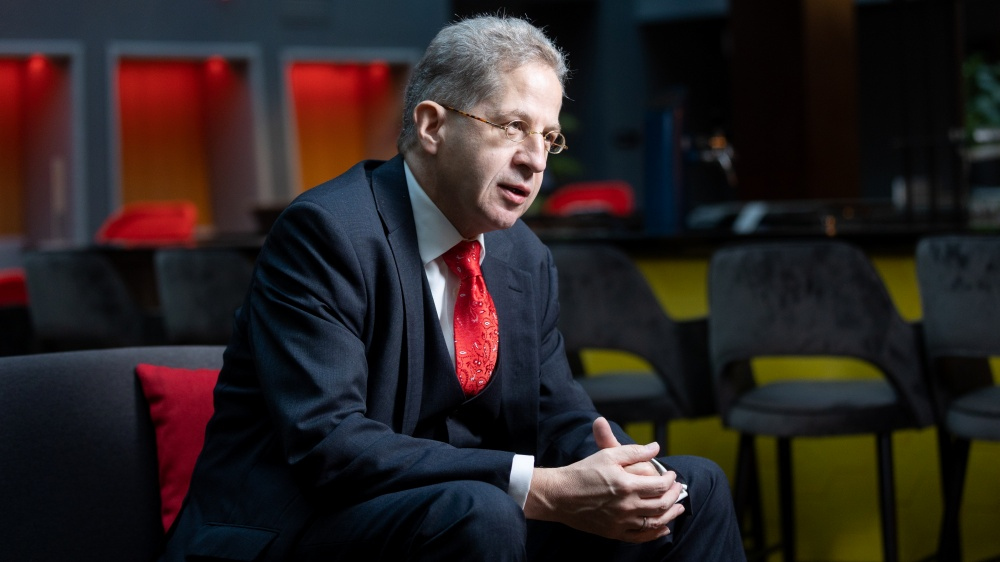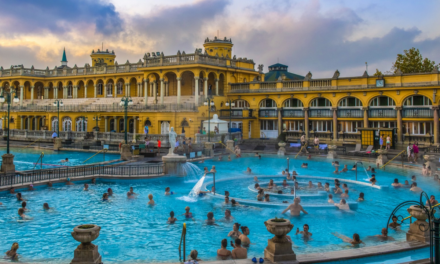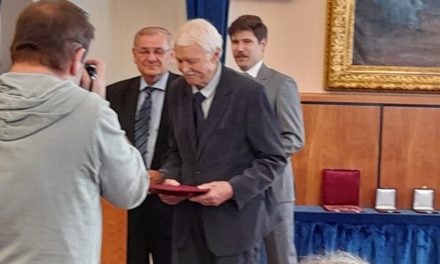For the former German spy chief, a trip to Hungary is a way to normality, and Angela Merkel has never been conservative.
Former CDU politician Hans-Georg Maaßen, who headed Germany's domestic intelligence, the Federal Office for the Protection of the Constitution (Bundesamt für Verfassungsschutz, BfV) between 2012 and 2018, gave a major interview to Jan Mainka, the editor-in-chief of the Budapester Zeitung, until he was forced to retire for political reasons, including his anti-migration statements. it didn't cost.
from Hungary
Mainka, who recently started his series of articles about Germans emigrating to Hungary, began his interview with Maaßen with our country. To his question, the former spy chief says: "I love the country, its history and the down-to-earth, realistic, tradition-conscious way of life of the Hungarians." Now even more than before, because I have the impression that
unlike the citizens of most EU member states, Hungarians resist left-wing ideologies and fanaticism."
However, it goes further than that: "For me, a trip to Hungary is a way to normality, where I am not forced to believe that there are no more than two" - says Maaßen, who thinks
"Hungary is an exciting emigration destination for many Germans considering emigration due to the stable policy of the Hungarian government, the geographical and cultural proximity to Germany, and the high standard of living."
Regarding German emigration, he says, "last year, according to estimates, a total of 150,000 Germans emigrated because they found Germany's political and economic conditions oppressive and did not want to burden themselves or their children with them. They are predominantly highly qualified or well-off people, possibly political dissidents". This, he says, is in stark contrast to immigrants in Germany, who are "mainly underqualified asylum seekers from Muslim countries, whose cultural fit and social added value are more than questionable."
About the Hungarian EU debates
According to the former head of the BfV, Hungary is not aggressive enough in its disputes with European institutions. "Hungary should keep in mind that there are an incredible number of Germans who admire Prime Minister Orbán's clean, conservative and realistic policy and want Hungary to play a stronger role in the European fight against green-woke ideology.
Some people specifically consider Hungary a political lighthouse in the sea of political madness and denial of reality"
- according to Maaßen, who says that the entire set of conflicts in the EU is a "showdown with the political enemy" and "has nothing to do with the basic idea of liberal democracy or a liberal Europe, it is a question of the techniques of the political left to silence people or political positions they don't like". He believes that "at the moment, the Hungarian government is still too defensive in my eyes."
From the German right
Maaßen agrees with Prime Minister Viktor Orbán's statement that the CDU is now a left-wing party, and says that "similar things can be said about the CSU." He believes, "Mrs. Merkel, who was never a conservative, managed to turn the once-conservative CSU into a left-wing party by filling key personal positions in the CDU with political leftists or opportunists, then turning the CDU into the in terms of the program, it brought him closer to the Greens".
Nevertheless, he sees the future of Germany in conservatism. "The future of Germany will either be bourgeois-conservative or it will not have a good future," Maaßen declares. He thinks that the right wing must finally grow up tactically: what they do with them is
"classic socialist showdown from a communist party textbook",
in the framework of which "the citizens are denigrated as Nazis, fascists, conteos, they are pushed out of political, social, and partially economic life, and contact bans are put into effect: anyone who talks to someone who is excluded is also excluded."
About Germany's foreign policy
Maaßen is particularly dissatisfied with Germany's Ukraine policy, he believes that they are not in a good relationship with German interests either. "German politicians were elected by the people
to represent German interests, not those of the US or the Zelensky regime.
Unfortunately, some parts of the CDU leadership seem to see it differently. I attribute this to the fact that the CDU's leading figures have been strongly socialized in the transatlantic system, and they cannot - or do not want - to imagine that German and European interests do not always overlap with those of Washington," says the former spy chief.
He also has a devastating opinion about the situation in the European Union. He says,
"in my opinion, the European Union project is on the verge of failure because it has been ideologized and no longer represents the interests of the nation-states, but of a bureaucratic elite.
We need a Europe of truly sovereign nation-states, which mostly limit themselves to their own interests, and then express these in cooperation at the European level".
Featured image: Márton Ficsor













